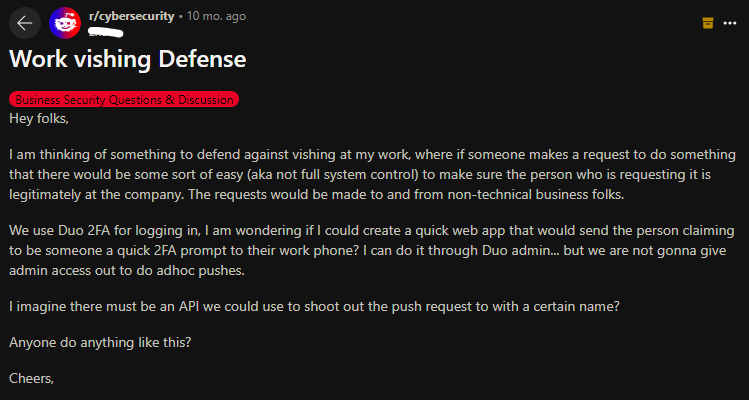Table of Content
- Where Does the 276 Area Code Come from?
- Is Area Code 276 Considered Spam?
- Why Do So Many Spam Calls Have the Code 276?
- What are the Spam Calls from 276 Generally About?
- 3 Ways to Determine if a Number with 276 Code is from a Scammer
- 7 Tried and Tested Workarounds to Get Rid of Scam Calls
- What are the Most Common Number Codes Used by Scammers?
- Frequently Asked Questions (FAQs)
- Be Wary of Spam Calls!
Have you ever received a call from an unknown number with the 276 area code and were reluctant to respond, fearing it was a spam call?
You are not alone.
Unwanted calls are a typical annoyance.
But hold on; there's more to the 276 area code than spam calls!
Let's dive in deeper and discover the fascinating world behind this area code.
Where Does the 276 Area Code Come from?
The 276 area code covers SouthWest Virginia, including Martinsville, Danville, and Abingdon. It was formed in 1995 from a section of the former 703 area code, which previously covered a considerably greater area of Virginia.
Is Area Code 276 Considered Spam?
Area code 276 does not contain spam. Western Virginia's area code is 276. It has occasionally been reported as spam, but exclusively by Virginia residents. No other state or territory in the United States has area code 276 linked with spam. If you live in Virginia, you can receive spam calls from this area code.
Why Do So Many Spam Calls Have the Code 276?
The 276 area code has indeed become a prime target for scammers. Scammers frequently exploit local area codes in a tactic known as neighbor spoofing, in which they make their caller ID appear to be from a local number to fool people into answering.
Total losses to phone scammers in the U.S. are estimated at an incredible $39.5 billion for the past year alone. Because the 276 area code serves a smaller area, scammers may find it simpler to exploit trust in the local community.


What are the Spam Calls from 276 Generally About?
You have to be careful about calls from the 276 area code, especially if you're not in Virginia. While it's not intrinsically a spam area code, it is a common source of spam calls, particularly for Virginia residents. Here's a summary of what these spam calls could be about:
Scammers frequently target medical and prescription issues, accounting for most of the spam calls from 276. They may offer low-cost medication or healthcare plans. Debt reduction scams are also common, and they claim to help you with debt reduction.
These can be very convincing, with scammers claiming to be from law enforcement or other official agencies. They might threaten you with arrest or other legal difficulties unless you pay them.
The Virginia State Police warns residents to be wary of fake calls involving police impersonation.
According to the department, “Several persons have reported receiving calls from someone identifying as a Virginia State Police officer or lieutenant. The caller ID shows a valid Virginia State Police phone number with a 276 area code to appear credible”.
⚠️Scam Alert ⚠️#Virginia residents getting scam calls from #VSP “Trooper” or "Lieutenant." The scammer has "spoofed" a legitimate VSP phone number with a 276 area code to appear credible. Pls hang up on this person & see the tips below on what law enforcement DOESN'T do... pic.twitter.com/DeWNaePLNN
— VA State Police (@VSPPIO) June 26, 2022
How Does Neighbour Spoofing Deceive You?
You would believe spammers are setting up base in Virginia to target you directly, but there's a more devious strategy at work: neighbor spoofing.
Neighbor spoofing occurs when scammers use caller ID to display a local phone number, usually with the same area code and prefix as yours.
This makes the call appear more trustworthy, as if it were from a neighbor or a local firm. They boost your chances of picking up the phone by making themselves appear familiar.
In 2022, Americans got 50.3 billion automated phone calls, a marginal decrease from 50.5 billion in 2021.
3 Ways to Determine if a Number with 276 Code is from a Scammer
Most cell phone companies assist you in identifying known scam numbers by displaying a "Scam likely", "Potential Spam", or "Spam Risk" notification on your Caller ID.
However, scammers may quickly alter their phone numbers and register new ones to make their calls appear authentic. Fortunately, there are ways and procedures you can take to avoid unsolicited calls from scammers.
- Different Code and Number
Scammers frequently spoof phone numbers to seem local, even while calling from abroad. Be wary if the area code looks familiar but the number is unfamiliar.
- Reverse Phone Number Lookup
While the findings may not be perfect, a lookup can reveal whether the number has already been reported for scams.
- Look Up Phone Numbers Using Google
If a persistent fraudster attempts to contact you via phone, you can easily block their number on your mobile device.
However, before blocking the number, you could discover more about the fraud by looking for it online.
Use Google's advanced search features to learn more about the phone numbers that are contacting you with scams.

7 Tried and Tested Workarounds to Get Rid of Scam Calls
Here are some methods for reducing the amount of spam calls you receive:
- Register with the Do Not Call Registry
This is a free service that decreases telemarketing calls but does not block robocalls.
- Enable Your Phone's Built-In Call-Blocking Feature
Most cell phones include a call-blocking capability. You may generally locate this option in your phone's call history or settings menu.
- Use a Call-Blocking App
Numerous apps are available for download that can detect and filter spam calls. These programs frequently employ a database of known spam numbers and can be trained to recognize spam calls based on call patterns.
- Don’t Answer Calls from Unknown Numbers
If you do not recognize the number, do not answer it. You can also screen the call and transfer it to voicemail.
- Don’t Engage With Spam Callers
If you answer a spam call, do not say "yes" or provide any personal information. Simply hang up the phone.
- Report Spam Calls
Report spam calls to your phone provider or the Federal Trade Commission. This will help them locate and shut down spam activities.
- Use PurePrivacy to Avoid Potential Scams
Scammers rely on data brokers to sell your personal information. PurePrivacy allows you to fight back. This app simplifies the process of removing your data from these brokers, making it more difficult for scammers to target you and giving you control of your digital footprint.
What are the Most Common Number Codes Used by Scammers?
Caller ID spoofing can take place in any area code, although the following are the most common in the US:
- 602, 623: Phoenix, AZ
- 214: Dallas, TX
- 832: Houston, TX
- 210: San Antonio, TX
- 404, 678: Atlanta, GA
- 704: Charlotte, NC
- 702: Las Vegas, NV
- 407: Orlando, FL
Frequently Asked Questions (FAQs)
-
What are "Scam Likely" Phone Numbers?

The label "Scam Likely" may appear on your caller ID when you receive an inbound call. This means that your cell carrier has determined that the number is most likely being used by scammers or spammers based on their database of known spam sources.
-
What should I do if I suspect I've been scammed?

Report the Scam: Report it to the FTC, as previously mentioned.
Check your accounts: Check your bank accounts and credit card bills regularly for fraudulent activity. -
Can I trace a scam call with the 276 area code?

Unfortunately, tracing a scam call is complex and generally ineffective. Scammers employ technology to hide their valid location, making it nearly impossible to find them.
Be Wary of Spam Calls!
While the 276 area code is not inherently spam, residents of Virginia, particularly western Virginia, should be wary of calls coming from it.
Scammers may fake authentic numbers inside this area code to appear more credible.
If you don't recognize the number, don't answer and let it go to voicemail.
You can always verify with reliable sources to get legitimate phone numbers for businesses or organizations from which you may expect a call.





